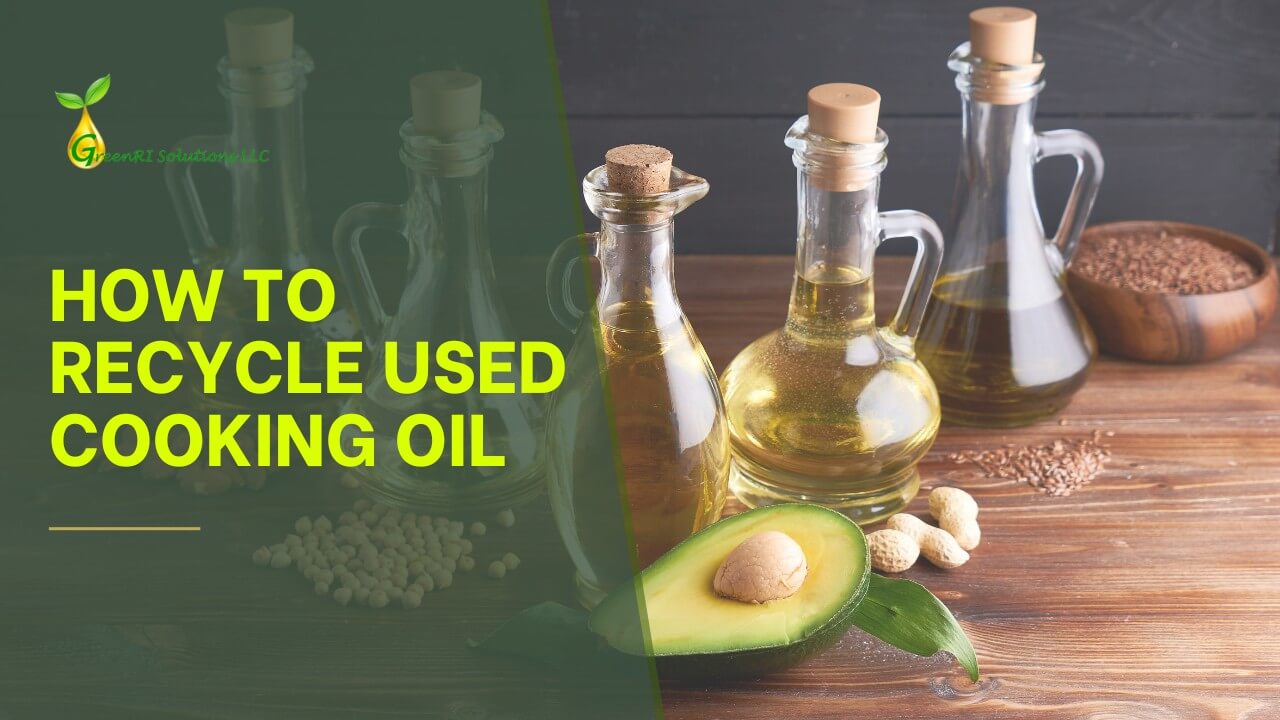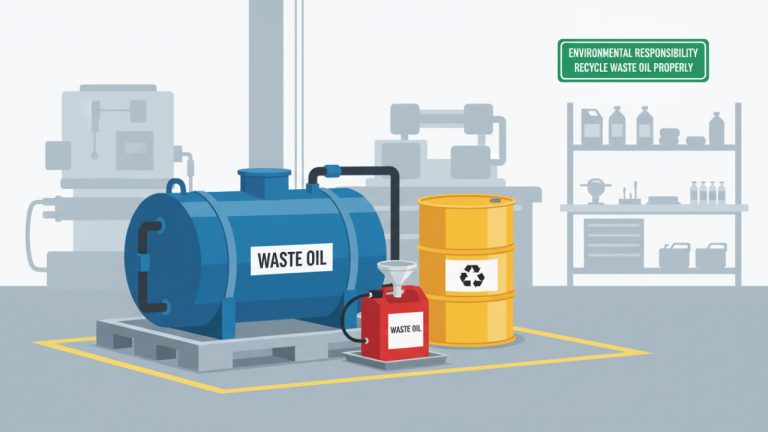How to Recycle Used Cooking Oil ?

Cooking oil is the most valuable ingredient in the home for baking, frying, and roasting. But whenever it is utilized then it can hurt the environment if disposed of improperly. Throwing it or pouring it down the drain can damage plumbing and contaminated soil and water. Recycling is a better choice as it is eco-friendly and gets the oil reused to produce biodiesel, animal feed, soap, and much more.
Recycling used cooking oil prevents harm to the environment by minimizing waste, conserving resources, and promoting renewable resources. We believe in promoting ecological practices that cater to both humans and the envirnoment at Green Risol. Simple steps can allow you to safely recycle your burned cooking oil while converting kitchen refuse into useful materials that lower ecosystem damage.
Understanding Used Cooking Oil
Cooking grease is plant, nut, and seed origin, such as olive, canola, and palm oil. It is used in baking but is not reused or recycled after use. Donating used grease down the sink clogs pipes, damages sewage plants and contaminates the environment. FOG, ( fats, oils, and grease) does not allow us to treat wastewater or preserve nature.
Why Recycle Used Cooking Oil?
Recycling used cooking oil is a vital practice that offers numerous environmental, economic, and energy-related benefits. It transforms waste into valuable resources, reduces pollution, and supports sustainability efforts. Here are the key reasons why recycling consumed baking oil is essential:
- Conserve Nature: Recycling avoids grease from polluting water and land, which can harm plants, animals, and ecosystems.
- Saves Resources: It can be made into biodiesel, a cleaner fuel, reducing the need for petroleum products.
- Requires Less Energy: This requires less energy than making new products from the ground up.
- Saves Money: Accurate disposal avoids clogged pipes and costly plumbing repair as it favors environmentally friendly industries.
Step-by-Step Process for Recycling Used Cooking Oil
This means collecting, cleaning, and reusing it to create valuable products like biodiesel or animal feed. This process helps reduce waste, protect the environment, and conserve resources.
1. Preparation
Simplified Steps for Preparing this lube:
- Cool the lube : This allows the lube to cool completely after use to avoid burns or equipment damage during recycling.
- Strain the lube : Use a fine mesh strainer or cheesecloth to remove food particles and impurities.
- Store Properly: Transfer the strained lube into a clean, sealable container such as a glass jar or metal can. Label the container with the type of lube and date for easy identification.
2. Recycling Options
Recycling used cooking lube can be done in simple ways:
- Local Recycling Centers: Many municipalities have designated facilities for collecting consumed baking lube.
- Commercial Pick-Up Services: Restaurants or households with large quantities of lube can opt for doorstep collection services.
- Composting (Small Quantities): Vegetable-based oils can be added to compost piles in limited amounts to enrich soil quality.
3. Innovative Applications
Once collected, used baking grease can be repurposed into various products:
- Production of Biodiesel: Triglycerides in the grease are changed to fatty acid methyl esters (FAME), producing biodiesel, a clean-burning renewable fuel for vehicles and heating systems.
- Biolubricants: It can be refined into machinery and home tool lubricants.
Soaps and Candles: Saponification converts ingested lube into environmentally friendly soaps or candles with scents of choice.
Advanced Recycling Technologies
Recent advancements have expanded the potential of this:
Biodiesel Refinement
Biodiesel acquired from recycled lube emits fewer greenhouse gases compared to fossil fuels. It requires minimal modification in diesel engines, making it a practical alternative energy source.
Biolubricants and Biosurfactants
Biolubricants are created by chemically treating recycled oils for use in industrial machinery. Biosurfactants are eco-friendly cleaning agents derived from waste oils, offering a sustainable alternative to synthetic detergents.
Circular Economy Models
Companies like Greenrisol are leading initiatives to upcycle waste oils into high-value products while minimizing carbon footprints.
Creative Uses for Recycled Cooking Oil
It isn’t limited to industrial applications; it can also be repurposed at home:
- Wood Polish: Use a small quantity of reused grease to wooden furniture to create a natural gloss.
- Natural Pesticides: Combine recycled vegetable grease with soap and water to make a natural pest repellent for gardens.
- Hair Conditioner & Skin Moisturizer: Use sparingly as a natural solution for dry skin or hair.
- Source of Fuel for Heating Devices: There are stoves and fireplaces that can burn recycled vegetable oils as fuel.
Challenges in Recycling Used Cooking Oil
Despite its benefits, recycling consumed baking grease comes with challenges:
Contamination Risks
Mixing different types of grease or failing to strain out food particles can reduce the quality of recycled products.
Logistical Barriers
Limited access to recycling centers or pick-up services in some areas makes it harder for people to recycle.
Awareness Gaps
Many individuals remain unaware of proper recycling practices or the potential uses of this grease.
Conclusion
Recycling used cooking oil is not only an eco-friendly option, but it is a step towards creating a sustainable future. When one knows how it works, its advantages, and the creative uses of recycled grease, individuals and organizations can go a long way in preserving the environment. GreenRI Solutions LLC are playing their role in transforming waste into a resource and proving that sustainability can happen if all are pulled together. Let’s do the right things today for a greener future!

